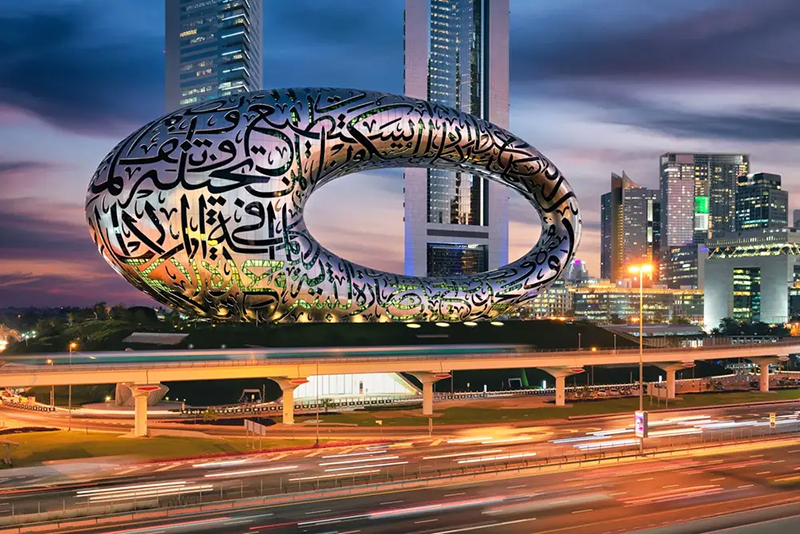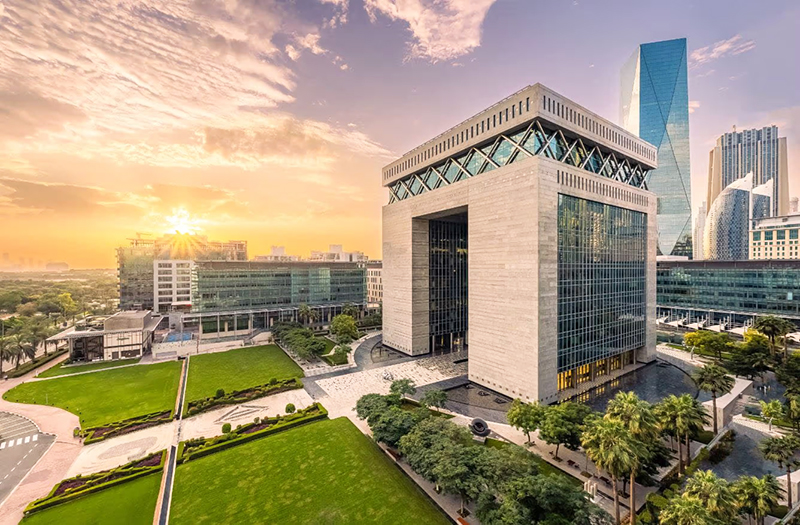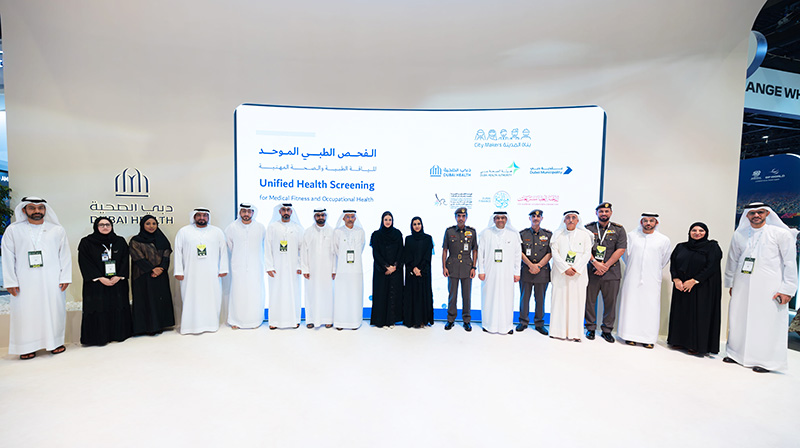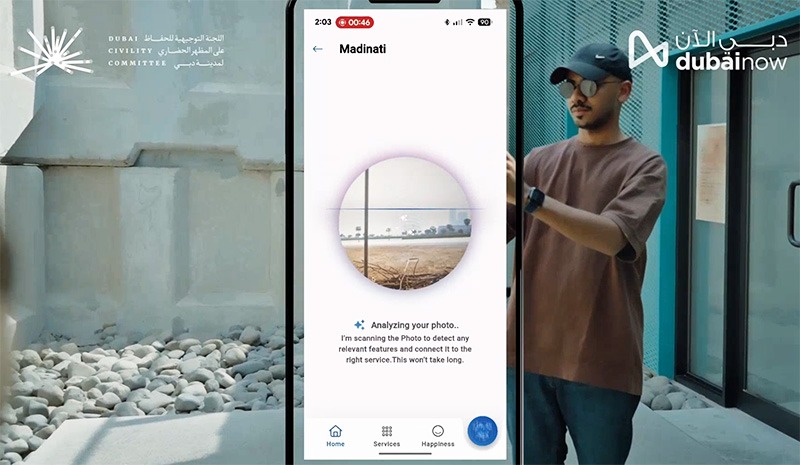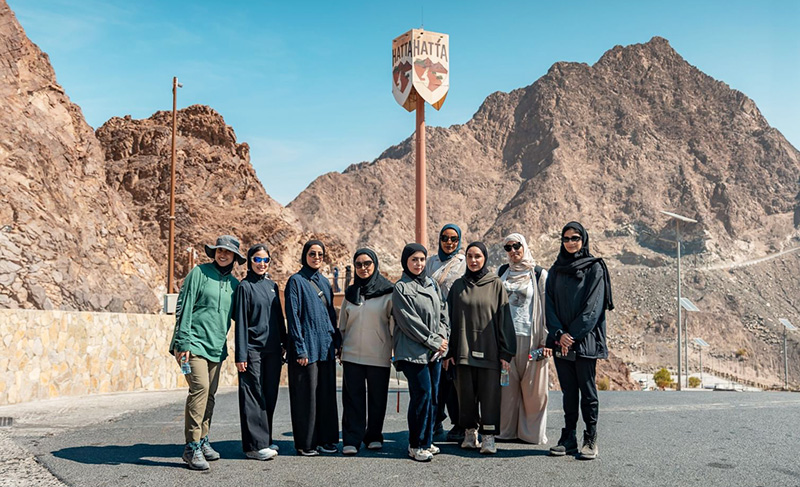
At the dawn of the new millennium, the telecommunications sector in the United Arab Emirates witnessed significant transformations due to rapid economic and technological expansion. In this context, Du Company was established in 2006 as the second telecommunications operator in the local market, with the aim of enhancing competition and expanding the range of services available to consumers, under the umbrella of Dubai Holding. The entry of Du was not limited to providing a new option for users; rather, it constituted a strategic step to diversify telecommunications infrastructure and develop a business environment that is more open to innovation and investment.
At that time, His Highness Sheikh Mohammed bin Rashid Al Maktoum, Vice President of the United Arab Emirates, Prime Minister, and Ruler of Dubai, appeared placing Du’s SIM card in his phone and actually used it, in a symbolic gesture marking the start of a new phase in the local telecommunications sector and the opening of a chapter of competition that was seen as a fundamental step towards improving services and enhancing innovation in the UAE market.
At that time, His Excellency Mohammed Al Gergawi, then chairman of Dubai Holding, said that “the existence of a second telecommunications provider expands consumer choices, improves service quality, and reduces cost,” stressing that “opening the doors to competition does not detract from the capabilities of the existing provider but positively reflects on the entire economy.”
This vision moved from idea to implementation when du was formally established in 2006, with Ahmed bin Byat appointed as Chairman and Osman Sultan as CEO, to shape a company capable of stimulating market dynamism and innovating alternatives that meet society’s aspirations. As soon as the company, which operates the 055 code, announced the My Number055 campaign, people queued to reserve their new numbers that retained the same current phone numbers but started with 055. Within weeks, about half a million customers had already reserved more than 750,000 numbers, signaling the symbolic transition from the 050 prefix to 055 ahead of the commercial launch on February 11, 2007.

Enhancing Competition
Since its commercial launch in February 2007, Du’s trajectory has embodied the impact of competition on the growth of the subscriber base in the United Arab Emirates. In less than a year, the company announced that it had surpassed 1.5 million customers by the end of 2007, a remarkable number in a market already saturated with SIM cards. In the first quarter of 2008, the number rose to about 1.7 million active users, according to press reports based on the company’s disclosures at the time. By the end of the second quarter of 2009, total subscribers reached 2.9 million, despite the global economic slowdown at that time. The base continued to expand, exceeding 5.2 million subscribers in the last quarter of 2011. At the end of 2014, Du announced that it was serving about 7.3 million active subscribers, maintaining the momentum of growth, with a notable expansion in the use of high revenue postpaid lines.
This organized competition had a noticeable impact on consumer behavior: the shift from a monopolistic system to multiple service offerings (such as multiple packages and widely available devices) led to the widespread adoption of smartphones and internet services. The spread of competition also opened the door to new innovations in mobile and fixed packages, resulting in increased user satisfaction, which was reflected in the growth of the subscriber base and rising demand for high capacity services. The index of the Telecommunications Regulatory Authority showed that total mobile phone subscriptions in the UAE grew by 5.3% by the end of May 2024 (the total market was 21.4 million). The company’s market capitalization today is estimated at about 46.8 billion dirhams, placing it among the largest telecommunications companies in the region in terms of listed capital, according to data released in July 2025.
Du and Digital Transformation: Artificial Intelligence, 5G, and Cloud Data
Du did not confine itself to just expanding competition; it also adopted pioneering digital strategies to reinforce its position in the evolving knowledge economy. It was one of the first Emirati companies to launch a fifth generation (5G) network, and it hastened to explore the advanced fifth generation (5G Advanced). In December 2024, for example, Du announced the opening of the Du Innovation Center in Dubai, a digital lab focusing on exploring the commercial potentials of advanced 5G and artificial intelligence technologies. The company said that this center would work on integrating artificial intelligence with augmented reality and open systems in practical experiments and applications, aiming to improve network performance and support advanced services (such as live broadcasting, gaming, and industrial applications) thanks to high upload and download speeds and low latency. This aligns with a global vision that sees the successive technological revolution (artificial intelligence, the Internet of Things, and cloud computing) as the primary driver for the birth of new economic sectors, where capitalism manifests in an ongoing process of continuous change and creative development—meaning it is a dynamic pattern in which the new replaces the old and stimulates sustainable progress.
Du also strengthened its infrastructure to transition to the knowledge economy through strategic partnerships. The company’s CEO announced that “Du’s partnership with Oracle will enable [the company] to provide sovereign cloud computing and AI services to the public sector in the UAE.” This means that Du is not limited to providing communication services only, but is working on building the necessary ecosystem for both government and private digital institutions. In a similar step, the company expanded its fintech services, where demand for its innovative Du Pay platform for digital transactions exceeded all expectations in the first quarter since its launch. These innovations are in turn expected to accelerate the emergence of a continuously growing knowledge based digital economy, in which products and services are built on the added value of information and data.

The Role of Du in Consolidating Institutional and Knowledge Innovation
As part of its technical efforts, Du also encouraged a culture of institutional innovation through specialized institutions and institutes. In addition to the aforementioned Innovation Center, the company established training and research programs to prepare national talents in the field of communications and modern technologies. It had previously established internal company labs and participated in joint research projects with universities and international institutions. For example, the Executive Diploma program in Government Digital Communication, in which Du cooperates with the New Media Academy, aims to support the skills of government communication teams and qualify them for the best global practices in digital communication.
From this flows Du’s role as a link between the educational and institutional sectors, as it helps transfer technical knowledge to the community. The company’s partnership with the government toward the digitization of smart services and increasing the UAE’s contribution to the knowledge based global economy is also reinforced. It is clear that building such knowledge infrastructures benefits the entire digital community; companies with advanced innovation centers create an environment in which scientific and experimental research stimulates the development of the national economy. Therefore, Fahad Al Hassawi, CEO of Du, affirms that the company focuses its investment on “enhancing our capabilities to keep pace with the requirements of the digital future… and laying solid foundations for long term growth”, and if that indicates anything, it is indicative of Du’s underlying vision in adopting a comprehensive digital strategy aimed at transforming the UAE into a regional center for digital innovation.
Du Company’s Social Initiative and the Transformation in the Relationship with Society
Du’s initiatives were not limited to technical and economic aspects; rather, it has had a pioneering social role reflecting the transformation in the concept of the relationship between institutions and society. The company adopted a series of corporate social responsibility programs and commitments that go beyond traditional donations, directing its contributions toward education, health, and cultural initiatives. One indicator of this is Du’s obtaining of ESG (Environmental, Social, and Governance) practice licenses from accredited bodies, in recognition of its efforts in sustainability and ethical practices. Previous evaluation data indicate that Du achieved a 9.6% increase in its overall score in the corporate social responsibility assessment, especially in the market and community categories. Experts believe that these achievements demonstrate how large companies in the UAE have begun to incorporate social responsibility into their core strategies. For example, Du provided scholarships worth five million dirhams to outstanding students in cooperation with local universities, and launched cultural initiatives such as “Du ala Hawak!” to fund musical and artistic events for the public.
Economic reports also indicated that Du has a strong share in corporate social responsibility metrics, especially in the community dimension (the community category achieved a 10.7% increase in the assessment compared to 2011). This enhancement of private sector participation in societal issues shows a new philosophical trend, namely that both small and large institutions have begun to aspire to build social and knowledge capital, as a contribution to the flourishing of human development and general welfare.
Du and E-commerce: Technical and Cultural Impact
Du also contributed to accelerating the spread of e-commerce not only through technical infrastructure, but also culturally and socially. The company provides a high speed internet network (including 5G) and data offers that enable access to digital stores and platforms easily, creating a favorable environment for shifting sales and shopping activity to electronic platforms. It also developed digital payment services such as Du Pay to link financial inclusion with e-commerce, to the extent that the Central Bank noticed a remarkable growth in digital transactions supported by these solutions. For example, demand for Du Pay exceeded expectations in the first full quarter since its launch in the market, which is considered an indicator of society’s acceptance of the new idea and its encouragement to use mobile payment applications.
On the cultural level, Du worked through initiatives such as supporting digital entrepreneurship and educating the public about the importance of the digital economy to change the traditional perspective on commerce. A new generation of shoppers and companies emerged that rely on electronic platforms for marketing and purchasing, driven by a newly developed digital culture supported by broader technological awareness. In light of the changes that global economies have witnessed in this field, it can be said that Du was one of the driving factors behind this transformation in the UAE, since it provided the technical foundation, regulatory incentives, and awareness together. It contributed to changing consumption and spending habits toward the dynamics of the digital economy.
In light of all the above, Du’s contribution in the UAE emerges as a model case combining the philosophy of a free market with innovative and social initiatives. From its establishment as a government option to liberalize the telecommunications market, to its support for concepts of competitiveness and multi service plurality to improve consumers’ quality of life, through its contributions to building the digital economy via artificial intelligence and fifth generation technology, and culminating in its social projects, it can be said that Du has played a pivotal role in shaping the new economic and social reality of the UAE.
